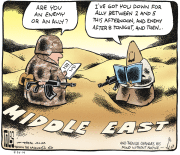Daesh and its conflicting enemies
The Paris attacks last Friday have so rattled everyone, at least in Europe, that they have superseded all other news. But the obsessive focus on that stunning violence and dramatic personal stories in that fabled city, the heart of western civilization and all that Daesh (or ISIS or ISIL or whatever) is not, can make us lose sight of major changes in other parts of the world, including those that may help us understand the attack and how to respond to it.
If you, like me, have been reading all the analyses in the western press, the declarations by presidents Hollande, Putin and Obama, and the very varied proposals by experts on how to combat Daesh, what we see is enormous confusion and a rush to actions—massive air strikes, declaration of a state of emergency—with no clear relation to the problem before us. Basically, they’re dramatic but pointless gestures, like the crowd’s singing the Marseillaise in phonetic transcription at Wembley.
President Hollande has proclaimed that France is at war. And he and President Putin, who also sees this conflict as war but whose aims are very different from Hollande’s, are now coordinating their bombing raids on a stronghold of Daesh in Syria. Can anyone explain how those air strikes are going to prevent further terror attacks in Europe? Or further bombs on Russian aircraft?
The assailants in Paris were not foreign agents—they were French and Belgian, radicalized in the neighborhoods where they had grown up and by self-indoctrination through the Internet. We don’t know who planted the bomb on the Russian airplane in Sharm El Sheik in the Sinai, but whoever it was did it locally and had no need of logistical support from distant Syria.
There are strong humanitarian reasons for combating Daesh, many different ones. Its atrocities against minority groups like the Yazidies, its oppression of women, its grotesque demonstrations of decapitations and other executions, even its destruction of archaeological treasures. But those are not the reasons that Obama, Hollande, and Putin are sending the bombers. Because bombing Raqqa will not stop any of those practices, and they must know that. No, there are other reasons for fighting Daesh but without actually destroying it. Each of the contenders in this conflict is playing a different game, with different goals, as Oliver Roy has explained clearly in his article on “the limits of Daesh.” Putin is trying to save Assad and Russia’s bases on the Mediterranean, Hollande is asserting French power in its former protectorate, Obama—well, it’s not clear to me that he has a clear aim, or even that he is entirely in charge of US military strategy. Each of these, and of the other contenders—Turkey, more worried about the Kurds than about Daesh, Saudi Arabia more hostile to Assad and his Iranian backers than to Daesh, Jordan and Gulf states all with internal problems of their own—only the Kurdish peshmergas seem to be doing anything decisive to halt Daesh.
So what is likely to happen? Daesh, or Islamic State, or whatever it may call itself (its leaders have changed the name some seven times), is not really a country, but a movement or a cause, a “caliphate”. Wiping out its stronghold in Raqqa may weaken its appeal to all those European youth who have flocked to it on the promise of a living income, wife, and the intense drama and publicity, or maybe not. The main thing that we should have learned from centuries of history is that such a cause that gives meaning to a life (however distorted we think that meaning may be) cannot be annihilated by bombs or spears or conflagration. If it could, neither Judaism, nor Christianity, nor Islam would have survived to this day. A cause can be subdued and contained, if not eliminated, only by a stronger, more meaningful cause. That is our challenge.
